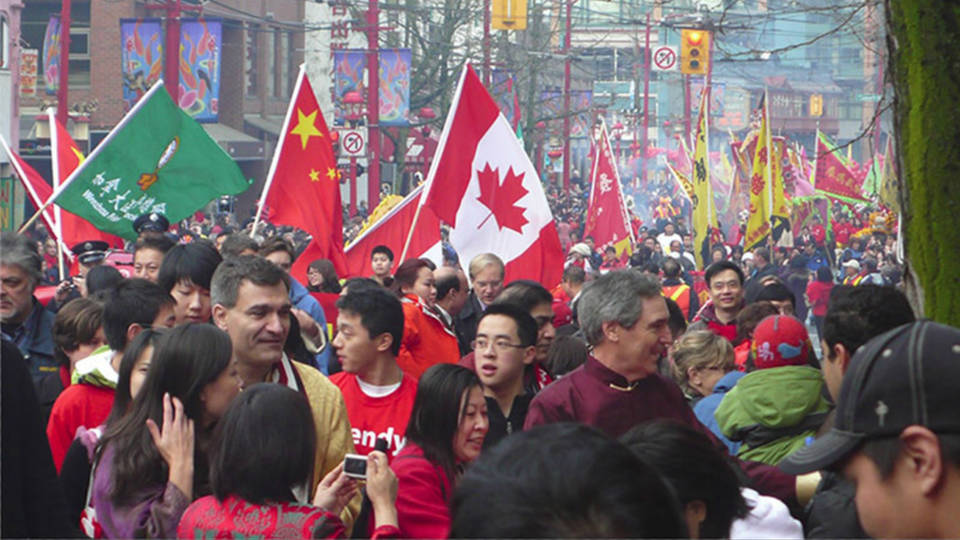By Majid Gafoor
People in Hong Kong, under colonial rule, were for the most part, apolitical. They just wanted to be left alone to make a good life for themselves. However, ever since the handover in 1997, there has been a growing movement for the citizens to exercise some sort of control over their own destiny.
While this may be taken as a form of maturity in a sense of nationality, it must develop along practical and legitimate lines. Unfortunately people have taken the naive route of “people power” when their numbers can only be called minuscule in real terms. Hence their dismal failure.
Now, the Hong Kong people are refocused on “escape” or seeking asylum in other countries. They want to leave their motherland which they claim to be “evil” for increasing its control over Hong Kong. The newly enacted national security law which Beijing established to restore law and order in Hong Kong was seen as an obstacle to greater freedoms.

Hong Kongers’ top choices for emigration include the UK (which claims to offer BNO holders residency), the USA, Canada, and Australia.
While the notion of leaving one’s homeland to seek a better future is a worthwhile endeavour, one wonders if those embarking on this journey have a clear understanding of what a change in nationality encompasses, especially with regard to loyalty, commitment and responsibilities.
Very often, people do not grow up and live in the country in which they were born. This could happen for a number of reasons. Parents moving from place to place because of work or choice or it could just be circumstances which force resettlement. Then in later years, we, ourselves may decide that our destiny could best be pursued in a different country from where we grew up – and so we emigrate.
Take an extreme case. A family has grandparents born in a country which has since been renamed. The parents have moved to a new country and you are born in the new country. When you grow up, you move to a different country altogether and your children are born in the country that you emigrated to. What is their identity? Your children can claim roots to a number of countries, but who are they? The answer that we provide to our children has far reaching effects. This is because we pass on our identity choice to our children and perhaps, even they to theirs.
/cdn.vox-cdn.com/uploads/chorus_image/image/67273430/chinaTown2014.0.jpg)
It is not an easy question to answer and nations themselves have tried to resolve this issue in different ways with various degrees of success.
Perhaps the most divisive solution is to allow dual nationality. This is a state-sponsored solution that effectively divides the person’s identity in two. However, if one’s identity is intended to allow us to be attached to a particular country and pledge our loyalty to that country, this solution poses an immediate threat to that idea. We are now given the choice as to where our loyalties lay – very much a quandary faced by most spies.
Then there is the halfway solution of multiculturalism. This is intended to portray a nation made up of a mosaic pattern of different peoples. It would be a workable proposition if it was just left at that. However, to make this solution possible, the state would need to offer support for the language, culture and beliefs of the immigrants to the extent that separate identities and communities are encouraged. This acts as a divisive solution rather than an inclusive one and leads to many misunderstandings, waste of resources and even occasions of discrimination.
The ultimate solution, in my view, is that we should celebrate our community as being a diverse mix of cultures. Countries should give the immigrants the freedom to pursue their own practices which have been handed down by their ancestors.

To make this happen, this must be tempered by the laws and the social behaviors of the country which they have now adopted as their home. Their first loyalty must be given to the country that has adopted them. They can claim origins other than their adopted country, but when asked, they must answer without equivocation that they are a citizen of the country which flies the flag. Anything else is unacceptable.
When you are able to make a choice of where you and your family plan to settle down and make a home for yourselves, you must accept that it is a privilege to live in the country that has adopted you. With that privilege comes the responsibility to show your appreciation and loyalty to that country.
Nowadays, pro-protest Hong Kongers say on social media “We just really fxxxing love Hong Kong” (我哋真係好X鍾意香港) in expressing their sentiment in defying China. Ironically, they are the same people who are seriously considering moving overseas.
Should these emigrants continue this “love” despite living abroad? A foreign country is not a hotel of convenience for those who wish to leave their homeland for whatever reason. It is a commitment. It is embracing a new home with new values.
To consider that you are living there simply because of your political needs is a betrayal of trust and you are not worthy of calling yourself a citizen of that country.
Majid Gafoor is a former journalist from Hong Kong. He now lives in Canada.